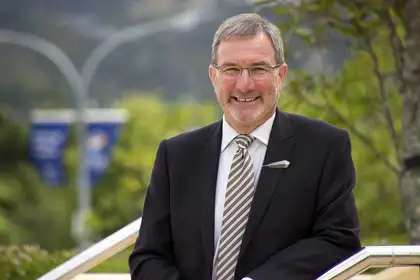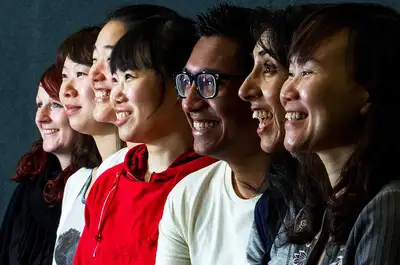
Distinguished Professor Paul Spoonley.
High rates of immigration are changing New Zealand in a range of ways, and both government and the public need to consider the issues in depth, says sociologist Distinguished Professor Paul Spoonley ahead of a free public lecture on the topic of immigration this week.
“Internationally, immigration has become a very contested and emotionally charged issue,” says Professor Spoonley. “Will it become one in New Zealand in an election year? And what are some of the issues that we should be debating?”
Massey academics from Greece, Germany and China will share their personal experiences as well as research findings on the complexities of immigration in New Zealand and how government should respond to the issues at Massey’s Auckland campus this Thursday.
Titled People on the Move, the discussion will be chaired by Professor Spoonley, with colleagues from the College of Humanities and Social Sciences Dr Anastasia Bakogianni, Dr Liangni Sally Liu and Dr Jessica Terruhn, on the panel.
In the second of the College’s five-part Our Changing World series, speakers will drill down into the nuances of how global, local and internal mobility are creating several types of migration.
“Asian peoples seek new space and contexts, while refugees from troubled parts of the world flee danger,” says Professor Spoonley.
“Some governments try to stem the flow of refugees, but welcome economic migrants. However, even economic migration is controversial when locals feel the pressure on scarce communal resources, and blame migrants for rising house prices. With internal migration, cities grow and rural areas decline.”

Thinking about how to create inclusive communities for New Zealand's increasingly diverse population is critical, says Dr Terruhn.
Migrant scholars on the panel
East German-born panellist Dr Terruhn, who migrated to New Zealand in 2008, will draw attention to what she sees is the need to “be attuned to the nature of contemporary migration patterns and trajectories because our understanding has a direct effect on public attitudes as well as policy.”
She says that migration is no longer necessarily a linear movement from A to B that entails an expectation of settling permanently in the host society. “Instead, we see transnational or circular and indefinite or temporary movement. This requires a rethinking of still commonly accepted ideas of integration into the host’s national culture as well as notions of home, belonging, and rights based on citizenship.”
Thinking about how to create integrated and inclusive communities at the neighbourhood rather than nation state level is another area of interest. “An emerging body of research on the potential of 'urban citizenship' may help to overcome increasingly outmoded national frames of thinking and replace them with more adequate ideas of residence as the basis for participation,” says Dr Terruhn, who has lived and worked in France, the US, Northern Ireland and Australia.
She has been studying and researching migration and diversity for a number of years, currently as a senior researcher on a six-year research programme (CaDDANZ or Capturing the Diversity Dividend of Aotearoa/New Zealand) that investigates how migration-related diversity manifests itself in New Zealand and how institutions prepare for and respond to it.
Dr Bakogianni is an Athenian born and bred who studied Classics at school in Greece – a core subject in her native country. She completed her higher education in the United Kingdom, and spent time living and working in Brazil, Canada and the United States, arriving in New Zealand in July 2016 to take up a post at Massey University’s School of Humanities teaching classics.
She is interested in the Greek refugee crisis and its impact in Europe, and says her teaching and research are focussed on “how the arts and humanities have responded to this and other crises within the wider global context, and what classics can contribute to this important public debate.”
Dr Liu moved to New Zealand – which she regards as home – from China to study firstly as an international student in 2001. She joined Massey’s School of Humanities teaching Chinese language and cultural studies after completing higher education at the University of Auckland then two years as a postdoctoral fellow in Singapore.
She will discuss the evolving process of policy making in relation to the entry of migrants’ parents, policy impacts and implications, and public attitude towards parent immigration.
For more information, or to register for the lecture, click here.
People on the Move is on Thursday, April 6: 6pm-7.30pm in the Atrium Round Round, Auckland campus, Albany.